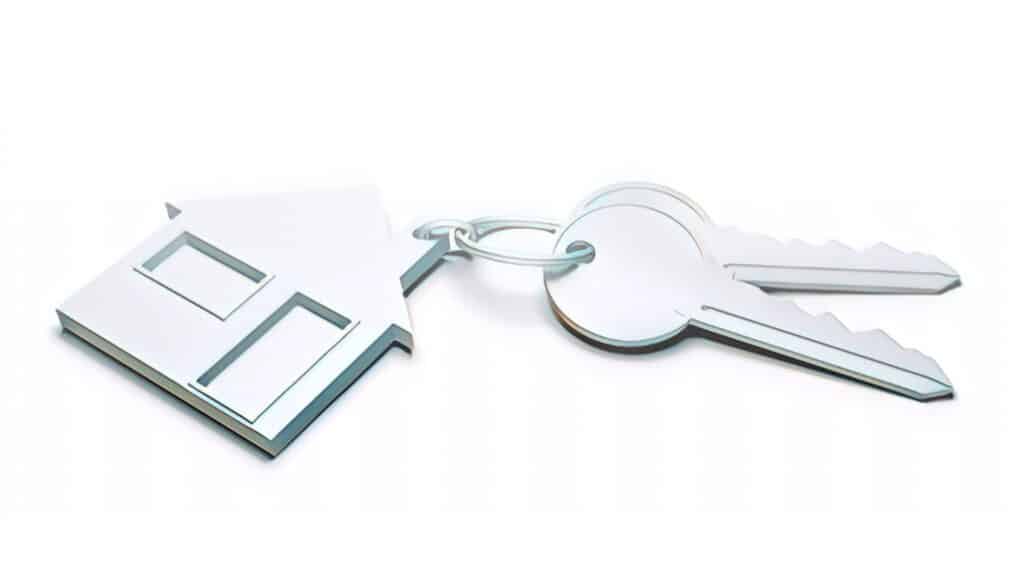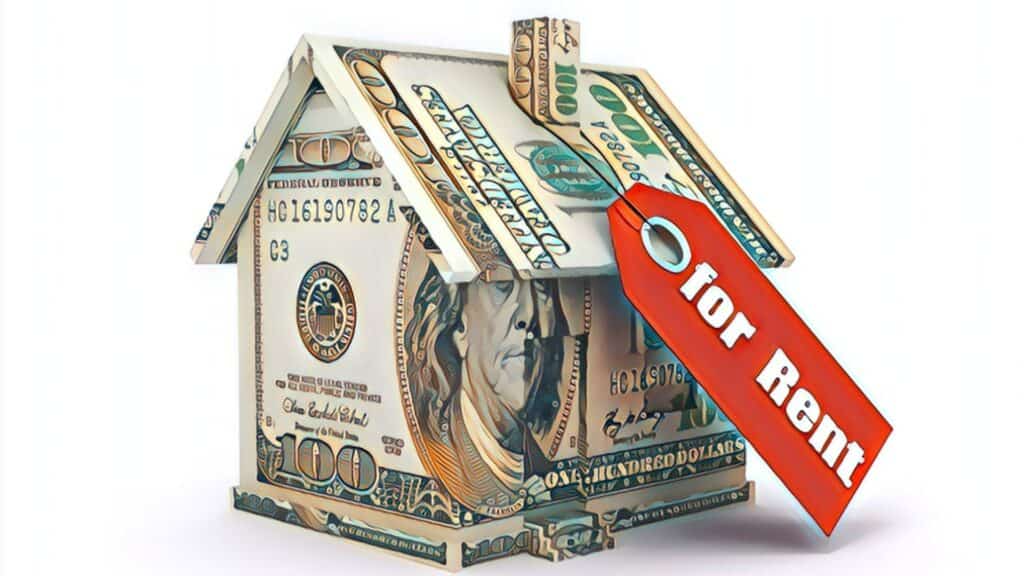Create Your Own Financial Footing
listen to this article
11 Ways To Buy Your First Rental Property With No Money and No Credit: Making Deals Happen When the Numbers Make Sense
Let’s face it, for most of us, building financial security is important, not only for ourselves but for the people in our lives we care about most.
Financial stability can be built in many ways and at many different speeds.
Close to the top of the list for more than 200 years, owning rental property has been one of the best ways to build reliable earnings from rental income.
Many people realize the fact that rental property has shown to be a great, long-lasting investment, but many people do not think they have the money or credit to begin the process, therefore continuing to make the dream of property ownership unreachable.
Now is your chance to gain what wealthy investors have known for centuries as rental property owners.
By the end of this article, you will have a solid grasp of the concepts of real estate investment strategies of how you can own your first rental property without using any of your own money or credit.
Let’s get you into rental real estate.

Why should you own rental property?
Owning rental property is a great way to make a long-term investment. It can provide positive cash flow and potential appreciation in the value of your asset over time.
Additionally, owning a rental property can help reduce your tax burden by deducting any expenses related to upkeep, repairs, or improvements from your taxable income.
You may also be able to qualify for government grants and other incentives depending on where you live.
Finally, having rental property provides an opportunity for passive income via tenants paying your monthly mortgage payment — you’re able to generate money without actively working for it — which makes it easier to build wealth and achieve financial freedom over time.
Investing in rental properties is a smart way to diversify, secure your financial future, and build generational wealth.

Buying Rental Property
Real estate investing is one of the best ways to generate passive income and build long-term wealth. For real estate investors, buying rental properties can be a great source of income.
With no money and no credit, it’s possible to purchase a rental property with creative financing strategies such as house hacking, hard money loans, and partnerships.

1. Research the Market
Researching the market is key when looking to purchase your first rental property with no money and no credit. Taking the time to get a thorough understanding of the current market conditions can help you identify a good deal that will work for you.
Looking at recent sales (comps/comparables) in similar properties can give you an idea of what kind of price range to look for and which areas may have more potential for profitable investments.
When buying a rental property, it is essential to understand the area’s comparable properties. Knowing what similar properties in the same area are selling for helps establish an after repair value (ARV) that can be used as a basis from which to make an offer.
Doing due diligence in researching and studying market trends can lead to finding the best deal when purchasing your first property.
In using the MAO (maximum allowable offer) formula, the ARV should be determined with caution as overestimating could mean that you overpay for your first rental property.
It’s important to consider any necessary repairs and renovations before calculating your ARV and making an offer on a property. Being aware of current market trends will help you get a better understanding of how much money you will need to invest to bring it up to market standards and secure the best return on investment (ROI).
Additionally, exploring local rental trends will help you determine whether or not it is worth purchasing now.
Researching competitors in the area who are renting similar properties can show you what kind of returns they are getting from their investments, helping you make sure that any deal you pursue will give you a positive return on investment.

What is the MAO (maximum allowable offer) formula?
The Maximum Allowable Offer (MAO) formula is a tool that real estate investors use to determine the maximum amount of money they should offer for a potential rental property. This formula takes into account the value of the property, the purchase price, and current market prices to calculate an estimated return on investment (ROI).
Simple MAO Formula Example: ARV x 0.75 (75%) – REPAIRS = MAO
When calculating MAO, holding costs while any repairs or construction is being performed should also be considered.

2. Secure Financial Backing From Others
Securing financial backing from other investors is a great way to buy your first rental property with no money and no credit.
With the current housing market being extremely competitive, it is important to look into different ways to finance a rental property purchase.
Many investors are turning to private lenders or family members who may be willing to provide some upfront capital in exchange for a return on their investment in the form of interest payments or equity.
Asking a family member or close friend for help when purchasing the property may be a good idea as one of your first contacts to secure the necessary funds.
Friends and family may be one of the smartest ways to finance your property because they would most likely charge you less money due to lower interest rates if any at all.
If they are willing, they can provide you with enough money for the down payment and closing costs associated with the rental property.
This could potentially be done in exchange for an agreement that allows them to share in any profits made from renting out the space or selling it at a later date.
The key here is finding someone you trust and can establish an agreement with that works for both parties involved.
If possible, try to negotiate terms where you can pay off the loan as soon as possible so that you can gain back full control over your rental property without having another investor involved.
It might also be beneficial to have an attorney look over any legal documents involved in securing financial backing from others just to ensure your interests are fully protected.

3. Find a Good Realtor
When it comes to finding the right real estate agent, it is important to take your time and do your research.
A good real estate agent can help you find the perfect rental property in some of the best places for your needs and guide you through the entire process.
Start by asking friends or family for referrals to a good real estate agent. You may also want to use online resources such as Yelp, Angie’s List, or the Better Business Bureau (BBB) to find reviews of local agents in your area.
When you have narrowed down a few options, take the time to interview each one and ask them questions about their experience in the local market.
Be sure to learn about their qualifications so that you can pick an agent who will be able to negotiate on your behalf during negotiations with sellers.
One of the best things you can do as a real estate investor is to have a relationship with a reliable realtor. A good realtor will be able to help you navigate the complexities of buying your first rental property and provide invaluable guidance along the way.
Having an experienced professional on board can save you both time and money, especially when it comes to researching properties for sale in your target area.
They will be able to give you an accurate assessment of potential issues or opportunities that may arise, which helps ensure that you purchase a property at a good price.
Additionally, they are often aware of properties that are available before they hit the market or off-market opportunities not available through traditional methods such as MLS listings.

4. Look for Seller Financing/Creative Financing
What is seller financing?
Seller financing is an attractive option for those looking to purchase a rental property without using their own money, credit, or financial institution.
This type of financing involves the seller providing a loan to the buyer in exchange for payment over time.
Seller financing can be attractive because it typically requires less money upfront from the buyer and may offer more favorable terms than traditional bank loans when reimbursing the seller by monthly payment.
Fair housing laws prohibit sellers from discriminating against potential buyers due to their race, color, national origin, religion, sex, familial status, or disability.
When offering seller financing, sellers must make sure any terms they offer are available to all qualified buyers regardless of protected characteristics under fair housing laws.
Sellers should also check with their local state and county agencies for specific regulations that apply regarding seller financing as well as other applicable lending laws before entering into an agreement with a buyer.

What is creative financing?
Creative financing is an often overlooked real estate investing strategy for buying rental properties with no money and no credit.
This technique involves using a combination of leverage, timing, and resources to purchase a property without having to put any money down or use your credit score as collateral.
It is important to note that creative financing does not mean skipping out on traditional loan requirements but instead finding alternative ways to secure the funds necessary for the purchase.
One common way to employ creative financing techniques is by seeking owner-financing options from sellers who are willing and able to finance a portion of the sale price.
In this type of situation, you can negotiate terms that work in your favor while still providing the seller with some assurance they will receive payments over an agreed-upon amount of time.
The real estate market is full of opportunities for creative financing arrangements, so it’s worth looking into if you’re considering buying your first rental property with limited resources.
Be sure to discuss your options with the seller and any other potential lenders before signing anything so you understand all of your responsibilities and rights as part of the agreement.

5. Consider House Hacking
What is house hacking?
House hacking involves living in your current home (single-family home or multi-family building) as an investment property while renting out rooms or units in the same building, therefore becoming the property manager.
This allows real estate investors to save on their own housing costs while generating additional income from renters in the same dwelling.
House hacking has become a popular choice for first-time rental property investors who have the right property for such a strategy.
Now is the perfect time to explore this approach as mortgage rates remain low and competition for properties increases.
The main advantage of house hacking is that it allows you to live rent-free or at a greatly reduced rate, depending on the number of units you can occupy and rent out.
Not only does this reduce your costs, but it also allows you to build equity in a long-term investment from day one.
Plus, with rental income supporting your mortgage payments, it can be easier for first-time investors to qualify for financing than if they were purchasing a traditional rental property without tenants already in place.

6. Utilize Hard Money/Private Money Loans
What is hard money?
Hard money loans are short-term investments secured by real estate assets and can provide access to capital for buying rental properties that traditional lenders won’t finance.
Hard money loans are a viable option for those who do not have the funds or credit to purchase their first rental property.
They are short-term investments secured by real estate assets and can provide access to funds as long as the borrower has sufficient property value and equity.
These loans are typically used by experienced investors seeking to quickly acquire rental properties, as they offer more flexibility than traditional bank loans with fewer restrictions.
When considering hard money loans, investors should understand the risks involved and ensure that the loan aligns with their investment goals.
Hard money lenders will often charge higher interest rates than banks, so it is important to assess the cost of borrowing against potential property prices and rental income.
Property values may also fluctuate, making it essential that borrowers factor in any potential fluctuations of value when assessing whether a hard money loan is right for them.

What is private money?
Private money is a type of investment strategy that involves borrowing from private lenders, such as a personal loan from family members and friends (previously mentioned), to finance the purchase of an investment property.
Private money can be used to finance a variety of investments, including rental properties.
When considering using private money for your first investment property, it is important to have an airtight agreement in place that lists the terms of repayment and interest rate.
It is also essential to make sure that all parties are clear on their respective roles and responsibilities throughout the process.
Additionally, investors should be aware of any tax implications associated with using private money for their investment properties.
Using private money as part of your investment strategy can be highly beneficial when purchasing your first rental property.
Private money allows you to build up credit with your lender while simultaneously allowing you to acquire more properties than what would otherwise be available if the financing was done through traditional methods.

7. Try Partnerships and Joint Ventures
For new investors who have already exhausted their own financial resources, partnerships and joint ventures are a great way to use other people’s money and credit for investing.
The good news is that there are several options available to help you buy rental properties without using your own money or credit score. One option is to find a partner who can provide either the cash or the credit needed to purchase a property.
Or, you could form a joint venture with another investor who has access to capital and/or the knowledge of the real estate market that you lack.
Joining forces with another investor not only gives you access to more resources but also provides an opportunity for collaboration whereby both parties can benefit from their collective knowledge and experience to achieve their financial goals.

8. Negotiate Lease Options
What is a lease option real estate deal?
A lease option real estate deal is an agreement between a landlord and tenant, where the tenant has the option to purchase the property at any time during the lease.
This type of transaction is often used when someone is looking to buy a primary residence but does not have enough money for a down payment or good enough credit to qualify for a mortgage loan.
Instead of having to put up all of the money upfront, a tenant can pay an option fee and then make monthly payments on top of that. The amount of these payments will go towards the purchase price if they decide to exercise their option at some point in the future.
In addition, tenants may be able to negotiate other terms with their landlord such as rent credits or additional incentives that could reduce their overall purchase price.
Depending on the funds needed for repairs, fees, etc., initializing a lease option on a property may be a good strategy and your first step to acquiring your first rental property.
Considering the landlord-tenant laws in your city and state, a lease option could help you and your tenant improve your financial situation.

9. Utilize Government Programs
As we know, investing in rental property can be a great way to increase your income, but many people don’t take advantage of the opportunity because they lack the necessary funds to do so.
Way 9 of buying a first rental property with no money and no credit is to utilize government programs that can help with financing.
Now may be a good time for you to consider buying your first rental property and taking advantage of these programs.
Many state and local governments offer loans specifically designed for buying rental properties, like low-interest loans or down payment assistance options.
The right time can make all the difference when it comes to utilizing these types of government programs, as some have specific deadlines that must be met to qualify.
It’s important to do your research and read through all the terms and conditions before entering into any type of agreement or loan program.

10. Pool Resources/Start A Real Estate Investment Fund
Starting a real estate investment fund is one of the most effective ways to purchase your first rental property with no money and no credit.
Pooling resources from friends, family, business partners, or even strangers can be a great way to acquire multiple properties without the need for large amounts of capital or personal guarantees.
This type of investment may also provide extra income to participants when rental fees are collected or when the fund is liquidated at the end of its term.
An attractive rental investing avenue to look into is commercial real estate. Commercial properties can be very versatile and can be a great investment for all fund partners involved.
Creating a commercial real estate investment fund is an enticing option for those interested in the real estate market.
Investment funds allow investors to pool their money together to purchase multiple properties at once and benefit from economies of scale, allowing them to reduce their risk while potentially increasing returns on their investments.
Here are two of the biggest reasons why investing in a commercial real estate investment fund is such a great investment opportunity:
- First, commercial properties such as retail spaces, tend to be more profitable than residential properties. They often have higher rental rates and may generate income from multiple tenants instead of just one. This can result in higher cash flow and more significant long-term profits for investors.
- Second, commercial properties are typically less volatile than residential or other types of investments because they usually hold some form of inherent value due to their location or purpose. This makes them ideal investments when seeking stability and consistent returns over time.

11. Tap into Retirement Funds
Way 11 of buying a rental property with no money and no credit is to tap into retirement funds.
This can be done by taking advantage of certain financial products offered by financial institutions that provide access to retirement funds.
A common example is a 401(k) loan, which allows an individual to borrow up to 50 percent of the total balance in their account or $50,000—whichever amount is lower—for any purpose.
This can be used as a source of funding for purchasing a rental property without having to use any cash or credit.
However, it should be noted that when repaying the loan, interest will need to be paid back at market value and penalties may apply if the loan isn’t repaid within the designated timeframe.

Conclusion
As mentioned throughout this article, buying a rental property with no money and no credit is absolutely possible with a little bit of time and effort.
You just have to get creative and start planning for it today! The key is to find creative ways to finance the purchase. From using a partner’s credit or financial resources to taking advantage of government grants and loan programs, there are options available for those who need them.
But even without these methods, it’s still possible to buy your first rental property without much money or credit.
Now is the best time to consider investing in rental properties as real estate markets continue to be strong despite economic uncertainty.
Investing in real estate can be a great source of passive income for years down the road, so now may be the perfect moment to take that first plunge into this type of investment.
With some creativity and hard work, anyone can become an investor in a rental property – regardless of their financial situation!
Before you know it and with the right strategies in place, you can become a successful rental property investor without putting up any of your own money or credit.
Related Content:
- No Community and Connection in Real Estate Investing Until Now (Power Accomplished!)
- How To Calculate Leverage in Real Estate Deals (Use Investment Prowess to Build Wealth)
- The Secret to Real Estate Investing Success (How to Build a Powerful Real Estate Network)
- OPM Explained (Real Estate Investing Using Other People’s Money)






























